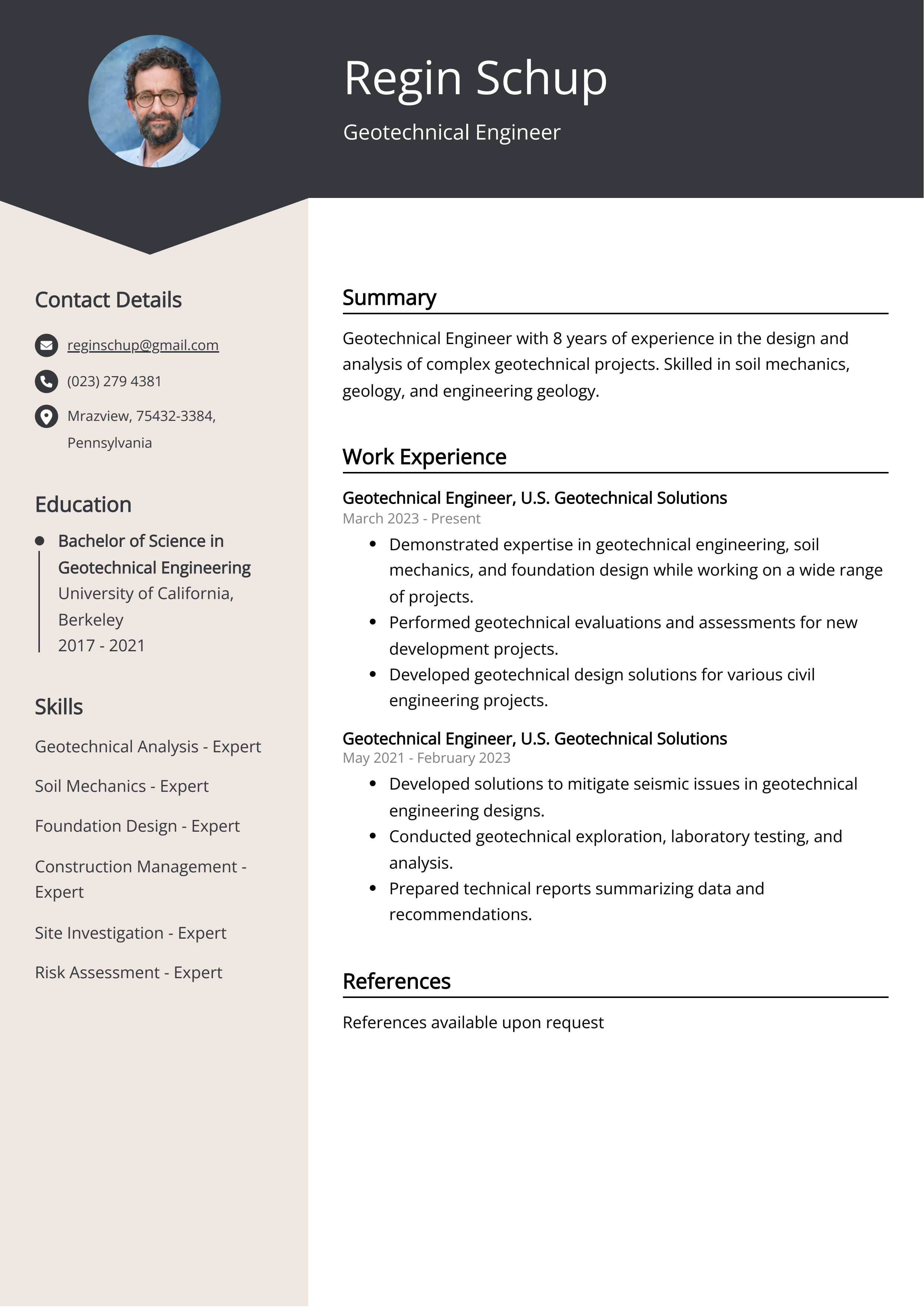Getting My Geotheta To Work
Getting My Geotheta To Work
Blog Article
The 30-Second Trick For Geotheta
Table of ContentsThe Ultimate Guide To GeothetaSome Ideas on Geotheta You Should KnowThe Single Strategy To Use For GeothetaGetting The Geotheta To WorkAbout Geotheta

They perform website investigations, collect examples, perform laboratory examinations, and examine data to evaluate the viability of the ground for construction jobs - Consulting Engineer. Based on their searchings for, geotechnical engineers provide suggestions for foundation design, slope security, maintaining frameworks, and reduction of geotechnical threats. They team up with various other experts, such as engineers, architectural engineers, and building teams, to make certain that geotechnical considerations are integrated into the total project design and implementation
By evaluating the behavior and properties of soil and rock, they can determine prospective geotechnical hazards such as landslides, soil settlement, or slope instability. Their knowledge assists stop failures or mishaps that might threaten lives and property. Below are some in-depth tasks and responsibilities of a geotechnical engineer: Site Investigation: Geotechnical engineers conduct website investigations to collect data on subsurface problems.
They translate the data to understand the residential properties and habits of the soil and rock, including their toughness, permeability, compaction qualities, and groundwater problems. Geotechnical Evaluation and Design: Geotechnical designers assess the information collected during website examinations to analyze the security and viability of the site for building tasks. They carry out geotechnical calculations and modeling to evaluate factors such as birthing capacity, negotiation, incline security, side planet stress, and groundwater flow.
Some Of Geotheta
Foundation Style: Geotechnical designers play a vital duty in making structures that can securely support the desired structure. They assess the soil conditions and load requirements to establish the proper structure type, such as superficial foundations (e.g., footings), deep structures (e.g (https://www.provenexpert.com/geotheta/)., piles), or specialized methods like soil renovation. They consider variables such as negotiation limitations, birthing ability, and soil-structure communication to develop optimal foundation layouts
They assess construction strategies, monitor site tasks, and conduct area examinations to validate that the design suggestions are complied with. If unforeseen geotechnical problems emerge, they analyze the situation and provide suggestions for removal or changes to the style. Threat Evaluation and Mitigation: Geotechnical engineers examine geotechnical hazards and dangers connected with the project website, such as landslides, liquefaction, or dirt erosion.

Cooperation and Communication: Geotechnical designers function carefully with various other professionals associated with a job, such as engineers, structural engineers, and building and construction teams. Reliable communication and partnership are necessary to incorporate geotechnical factors to consider right into the general project layout and construction process. Geotechnical engineers offer technical expertise, answer queries, and make sure that geotechnical demands are fulfilled.
The Buzz on Geotheta
Right here are some types of geotechnical engineers: Structure Designer: Structure designers focus on designing and evaluating structures for frameworks. They analyze the soil conditions, lots requirements, and site qualities to establish one of the most appropriate foundation type and style, such as superficial foundations, deep foundations, or specialized methods like stack structures.
They examine the factors affecting slope security, such as soil buildings, groundwater conditions, and incline geometry, and develop strategies to stop slope failures and mitigate risks. Earthquake Engineer: Earthquake designers concentrate on assessing and designing frameworks to withstand seismic forces. They assess the seismic hazard of a site, assess dirt liquefaction possibility, and establish seismic style standards to guarantee the safety and security and strength of structures throughout quakes.
They do area testing, accumulate examples, and evaluate the collected data to define the dirt residential or commercial properties, geologic developments, and groundwater conditions at a website. Geotechnical Instrumentation Engineer: Geotechnical instrumentation designers concentrate on surveillance and measuring the behavior of soil, rock, and structures. They set up and maintain instrumentation systems that keep an eye on factors such as dirt settlement, groundwater degrees, incline movements, and structural displacements to analyze efficiency and give very early cautions of possible problems.
The Greatest Guide To Geotheta
They carry out examinations such as triaxial tests, loan consolidation Check This Out tests, straight shear tests, and leaks in the structure examinations to collect data for geotechnical analysis and style. Geosynthetics Designer: Geosynthetics designers specialize in the layout and application of geosynthetic products, such as geotextiles, geogrids, and geomembranes. They utilize these products to enhance soil security, strengthen inclines, provide drain services, and control erosion.
They often tend to be investigative people, which indicates they're intellectual, reflective, and inquisitive. They are interested, systematic, sensible, analytical, and rational. A few of them are additionally social, indicating they're kind, charitable, participating, client, caring, helpful, compassionate, tactful, and friendly. Does this seem like you? Take our totally free career test to find out if geotechnical designer is just one of your leading profession matches.
In the workplace setting, geotechnical designers use specialized software program tools to carry out estimations, create designs, and examine data. They prepare records, evaluation job specifications, interact with customers and staff member, and coordinate job tasks. The office setting offers a conducive environment for research, analysis, and collaboration with other experts entailed in the job.
The smart Trick of Geotheta That Nobody is Talking About
They frequently check out project sites to perform site examinations, evaluate geotechnical problems, and gather information for analysis. These brows through include traveling to various locations, in some cases in remote or difficult terrains. Geotechnical engineers might perform dirt sampling, conduct tests, and screen building and construction activities to make sure that the geotechnical elements of the job are being executed correctly.
Geotechnical designers also function in specialized geotechnical research laboratories. Geotechnical laboratory designers function thoroughly in these settings, dealing with testing equipment, operating tools, and recording information.
Report this page